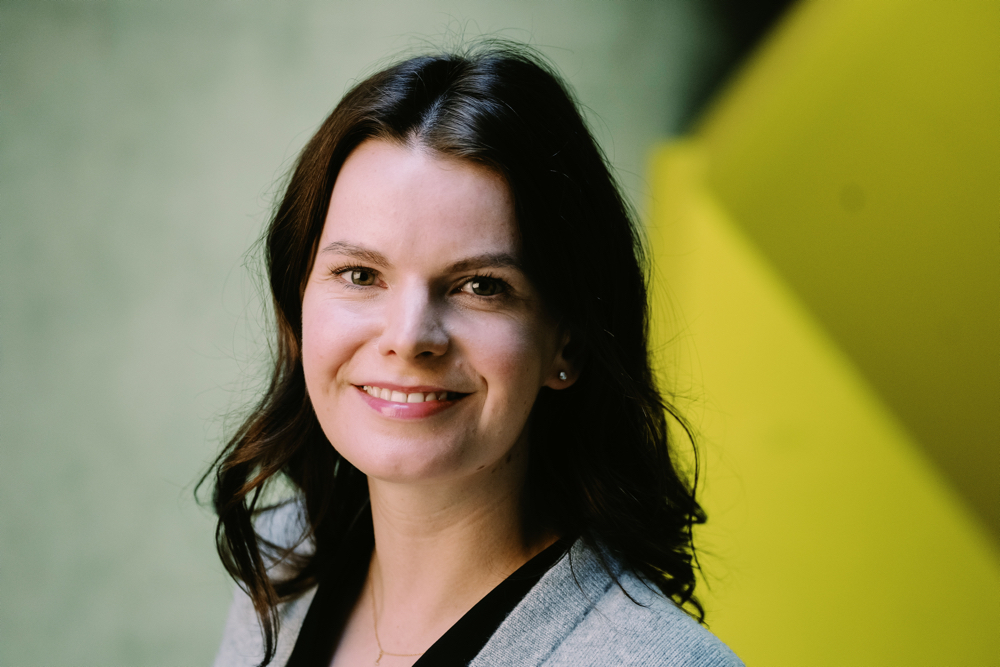With the help of the roles provided by Familyship, family is rethought & reconceptualized

Dr. Lydia Ottlewski is an assistant professor at the University of Southern Denmark (SDU) in the field of “Consumer Culture Theory” – consumer and market research from a cultural perspective. This interdisciplinary field of research is aimed at developing a better understanding of why consumers* act in a certain way and why consumer culture takes corresponding forms. Research approaches focus on understanding the interrelationships among economic, symbolic, institutional, and social relationships and their impact on consumers*, the market, institutions, and society.
Lydia conducted interviews with the two Familyship founders, analyzed discourses in media coverage, took a closer look at the Familyship platform and accompanied 23 families or to-be families over a period of 1.5 years. Lydia met all these people through Familyship. You could say no one knows quite like Lydia who Familyship is and what can come out of it. Her dissertation on the subject has been awarded the Peter Werhahn Prize for outstanding scientific work. Lydia has already published initial research on Familyship and recently discussed it in a podcast.
Lydia, so the opening question: what is co-parenting anyway?
Co-parenting enables people who, for a variety of reasons, cannot or do not want to form a traditional, so-called nuclear family, to nevertheless fulfill their desire to have children or a family. What is particularly exciting here is that the concept offers a great deal of creative freedom and can thus be applied to individual life plans regardless of relationship status, sexual orientation, or gender identification. We have been able to observe the result of this individual design freedom in the research results.
What motivated you personally to take a closer look at co-parenting?
First and foremost, I was interested in Familyship as a digital platform for starting a family. In my research, I deal with a wide variety of digital platform solutions that enable alternative social forms of family and community, such as the concepts of “living for help”, “time provision” and, of course, Familyship. The concept of co-parenting is, of course, central to alternative family formation via Familyship, but the initial research motivation was predominantly to investigate and understand in detail the social significance of this platform.
Was there anything surprising in your research process?
I was particularly surprised by the diversity of the desired or already established families. With the help of the roles provided by Familyship (active mother, mother with aunt function, active father, father with uncle function, Yes sperm donor), family is rethought & conceived – and individually tailored to the life models of those involved. In all 23 families, the family constellations (number of parents, genders, sexual orientation, roles in the family) were or are designed and lived differently.
Also critical or beautiful?
One challenge for alternative family models is building trust at the beginning of starting a family. As one interview participant aptly described it, “In heteronormative romantic relationships, people often just assume that loving and trusting each other can overcome potential emerging issues of everyday family life with children, but in nontraditional family models, it requires an alternative approach.” This approach often looked like the following in the family formation processes of our study participants: Co-parenting questionnaires were used for detailed discussions and “negotiations” to flesh out parenting agreements; these parenting agreements were often notarized and referred to in case of conflicts that arose later.
It was particularly positive to hear from “Familyship’lern” how “redeeming” they found the idea of the platform: finally a way to the potential desired child and/or also a way outside of the social pressure with people who share similar value concepts. During the research process, there were also families who met via Familyship and were expecting a child, or were already planning a 2nd “Familyship Baby” – this was of course very special.
Who is Familyship – who is embarking on the journey of co-parenting?
Familyship is impressively diverse. Regardless of relationship status, sexual orientation, or gender identification, the people on Familyship share an approach of critically questioning socially established structures and a desire to rethink family. Talking to the two founders, it also became clear that the users have diversified over the last 10 years: from LGBTQ, via heterosexual single women, to heterosexual single men who would like to realize themselves in an active father role.
Are there characteristics that contribute to the success of starting a family?
There is, of course, no universal recipe for a successful co-parenting family, as each family is individualized and has different starting points, challenges, and ideas. However, we have observed that the family formation process is often very rational: Concepts and ideas about the possible family are communicated clearly and transparently in advance, agreements are recorded in writing and proofread – by both parties, so that any misunderstandings that may arise later in the interpretation of the parenting agreements are avoided. The getting-to-know-you phase is deliberately designed to be intensive and possible conflict situations are actively addressed. Furthermore, honest and open communication and reflexivity in all phases of family formation is certainly a basic requirement.
What are the most important findings from your work?
The findings are very multi-faceted due to the diversity of our data collected and analyzed. An interesting perspective is that of the Familyship community. Another exciting angle is that of social entrepreneurship (article currently in review process). Familyship users and the associated family formation processes are another (article currently in review process).
Is there anything else you’d like to share?
The topic still holds a lot of research potential – interested potential study participants & already established Familyship families are welcome to contact me at: lydo@sam.sdu.dk for an interview.